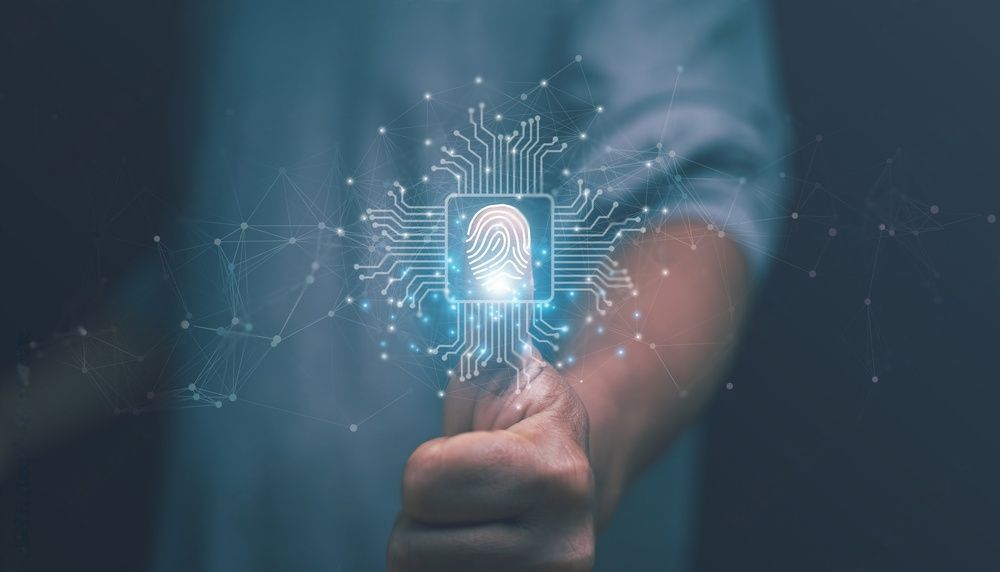The Dark Side of Private Investigations: Controversial Cases and Ethical Lessons
Introduction
Within the clandestine world of private investigations, a realm traditionally associated with the pursuit of truth and justice, there exists a distinct and unsettling underbelly the Dark Side of Private Investigations. This phrase encapsulates the shadowy complexities, ethical quandaries, and controversial aspects that often go hand in hand with the pursuit of information behind closed doors. While private investigators play a vital role in unraveling mysteries and resolving issues, their methods and practices can, at times, veer into morally ambiguous terrain, earning the field its intriguing epithet.
The Dark Side of Private Investigations encompasses a range of controversial cases that have cast a spotlight on the industry’s more enigmatic aspects. From ethically murky surveillance practices to instances of corporate espionage and the unraveling of personal lives in infidelity investigations, this article delves into the depths of these complexities. The phrase itself hints at the dual nature of the profession, where the pursuit of truth coexists with the potential for ethical transgressions.
As we embark on an exploration of these shadowy corners, we aim to dissect notable cases, unravel the ethical dilemmas faced by investigators, and ultimately shed light on the nuanced landscape that constitutes the Dark Side of Private Investigations. This journey will provide insights into the industry’s challenges, provoke reflection on its ethical boundaries, and offer a comprehensive understanding of the intricate dance between uncovering hidden truths and the moral responsibilities that accompany such endeavors.
The Gray Areas of Surveillance
Surveillance, a fundamental tool in the private investigator’s arsenal, often finds itself at the heart of ethical debates and legal scrutiny. While the intention behind surveillance is to gather crucial information and unravel mysteries, the methods employed sometimes tread the thin line between ethical and invasive practices.
In the world of private investigations, surveillance becomes a gray area when the delicate balance between necessity and privacy infringement is disrupted. High-profile cases have emerged where investigators, driven by the pursuit of truth, have pushed the boundaries of acceptable surveillance methods, raising important ethical questions.
One such instance involves cases where investigators have utilized advanced technology, such as drones and hidden cameras, to observe individuals without their knowledge or consent. While these tools may provide valuable insights, the potential for privacy violations becomes evident, prompting debates on the ethical use of surveillance equipment.
Moreover, the duration and intensity of surveillance operations often become contentious issues. Cases have arisen where investigators, in their zeal to uncover the truth, have engaged in prolonged and intrusive surveillance, monitoring individuals beyond what could be deemed reasonable. This prolonged observation, while potentially yielding valuable information, opens the door to ethical concerns regarding the right to privacy.
Legal boundaries further complicate the landscape of surveillance. Private investigators must navigate a complex web of laws to ensure that their activities remain within the confines of legality. However, the interpretation of these laws may vary, leaving room for ambiguity and potential abuses. This legal gray area demands a delicate balance, with investigators needing to stay vigilant to avoid overstepping boundaries and facing legal consequences.
The impact on the subjects of surveillance is another facet of the gray area. In cases where individuals are unaware that they are being observed, the emotional toll can be significant. The invasion of privacy can lead to feelings of violation and distress, even if the investigator’s intentions are rooted in the pursuit of justice.
Addressing the gray areas of surveillance necessitates a reevaluation of industry standards and the establishment of clear ethical guidelines. Some private investigation agencies have taken proactive measures by implementing strict protocols to ensure that surveillance remains within ethical bounds. This may involve obtaining informed consent when possible, limiting the duration of surveillance, and utilizing technology responsibly.
Unraveling Corporate Espionage

Corporate espionage, a clandestine practice with potentially far-reaching consequences, has become a focal point in the realm of private investigations. Private investigators often find themselves entangled in the complex web of corporate rivalries, where the pursuit of sensitive information and trade secrets can lead to ethical dilemmas and legal quandaries.
In the shadowy world of corporate espionage, private investigators may be tasked with protecting the interests of businesses by uncovering illicit activities or preventing the theft of proprietary information. However, the methods employed in these investigations can be ethically challenging, raising questions about the balance between corporate security and individual privacy.
One notable case that epitomizes the ethical complexities of corporate espionage involves a multinational corporation suspected of engaging in covert operations to gain a competitive edge. Private investigators, hired by a rival company, delved into the inner workings of the suspected organization, employing tactics such as undercover operations, electronic surveillance, and even recruitment of employees as informants.
The ethical quandary arises when investigators find themselves navigating a fine line between exposing potential corporate wrongdoing and infringing on the rights of individuals who may be unwittingly caught up in the investigation. The use of subterfuge and the infiltration of a corporate environment may lead to a breach of trust, not only between employees and employers but also between the investigators and the ethical standards guiding their profession.
Moreover, the legal implications of corporate espionage further complicate the landscape. Investigators must be well-versed in the relevant laws to ensure that their activities remain within legal boundaries. Trespassing, unauthorized access to computer systems, and the theft of confidential information are all potential legal pitfalls that investigators must navigate cautiously.
In addressing the unraveling of corporate espionage, the private investigation industry has increasingly emphasized the importance of ethical guidelines. Some agencies have adopted stringent protocols that dictate the permissible methods of investigation in corporate settings, emphasizing transparency, legality, and respect for individual rights.
As private investigators delve into the murky waters of corporate espionage, the ethical challenges they encounter underscore the need for a delicate balance between protecting corporate interests and upholding ethical standards. By learning from past cases, the industry can evolve to establish clearer ethical frameworks, ensuring that investigations in the corporate realm adhere to principles of justice, legality, and integrity. The pursuit of truth must coexist with a commitment to ethical practices, fostering an environment where private investigators play a crucial role in safeguarding corporate interests while maintaining the highest ethical standards.
The Pitfalls of Infidelity Investigations
Infidelity investigations, often depicted in literature and popular media as a staple of private detective work, carry a distinct set of ethical pitfalls. While the intention behind such investigations is to uncover the truth and provide closure to those suspecting betrayal, the delicate nature of personal relationships introduces complexities that demand careful navigation.
One of the significant pitfalls in infidelity investigations lies in the potential invasion of personal privacy. Private investigators tasked with uncovering evidence of infidelity may find themselves delving into the personal lives of individuals, observing intimate moments, and collecting sensitive information. The ethical challenge arises when investigators inadvertently intrude on the private domains of the individuals under scrutiny, leading to emotional distress and strained relationships.
A notorious case that exemplifies the pitfalls of infidelity investigations involves a high-profile couple whose marital discord became public during a highly publicized investigation. The private investigator hired to uncover evidence of infidelity employed aggressive surveillance tactics, including tracking the subject’s every move and gathering intimate details. The fallout from the investigation resulted in significant emotional distress for all parties involved, leading to legal consequences for the investigator.
Furthermore, the subjective nature of infidelity investigations introduces another potential pitfall misinterpretation of actions and intentions. Investigators may face challenges in distinguishing between harmless interactions and genuinely suspicious behavior, leading to the possibility of false accusations. The repercussions of such misjudgments can be severe, causing irreparable harm to relationships and reputations.
Ethical considerations also come into play when investigators engage in the use of deceptive methods to gather information. While undercover operations may be deemed necessary to uncover the truth, the line between necessary subterfuge and unethical conduct becomes blurred. The use of honey traps, fake identities, or impersonation raises questions about the morality of the investigator’s actions and the potential harm inflicted on unsuspecting individuals.
The emotional toll on investigators involved in infidelity cases is an often overlooked aspect. Witnessing the disintegration of relationships, dealing with heightened emotions, and being privy to intimate details of individuals’ lives can take a significant toll on the mental well-being of private investigators. This emotional strain underscores the importance of ethical self-care practices within the industry.
To address the pitfalls of infidelity investigations, ethical guidelines within the private investigation industry are crucial. Some agencies have implemented strict protocols to ensure that investigators prioritize the well-being and privacy of individuals involved in infidelity cases. These protocols may include obtaining informed consent whenever possible, limiting the scope and intensity of surveillance, and providing emotional support for investigators involved in emotionally charged cases.
The Rise of Digital Vigilantes
In the age of information, private investigators are increasingly harnessing the power of technology to gather evidence and uncover hidden truths. However, this digital frontier has given rise to a concerning trend of the emergence of digital vigilantes. These individuals, often acting outside the bounds of legal and ethical frameworks, leverage online platforms and digital tools to carry out investigations, raising critical questions about the ethics and responsibilities associated with such activities.
Digital vigilantes operate in a realm where the lines between legitimate investigation and cyber vigilantism blur. Unlike licensed private investigators who adhere to ethical guidelines and legal regulations, digital vigilantes often act independently, motivated by personal beliefs, grievances, or a perceived sense of justice. This trend has been fueled by the democratization of information and the ease with which individuals can access tools for online investigation.
Notable cases exemplify the rise of digital vigilantes. Instances where individuals take it upon themselves to expose alleged wrongdoings or criminal activities on social media platforms, without proper verification or legal authority, underscore the potential dangers of unchecked digital investigations. The consequences of such actions can range from reputational damage to irreversible harm to the lives of those falsely accused.
One ethical concern associated with digital vigilantism is the lack of accountability and adherence to due process. Traditional private investigators are bound by legal frameworks and ethical standards, ensuring a level of accountability for their actions. In contrast, digital vigilantes may operate with impunity, bypassing legal safeguards and contributing to a culture of online harassment and vigilantism.
Moreover, the potential for collateral damage in digital vigilantism is significant. In their fervor to expose perceived wrongdoing, digital vigilantes may inadvertently target innocent individuals, resulting in unwarranted harm to reputations and livelihoods. The lack of professional training and oversight compounds the risks associated with these unsanctioned investigations.
Addressing the rise of digital vigilantes requires a multi-faceted approach. Legal authorities must adapt to the evolving digital landscape, ensuring that legislation keeps pace with technological advancements. Additionally, public awareness campaigns can educate individuals on the potential harms of engaging in digital vigilantism and the importance of leaving investigations to trained professionals.
Within the private investigation industry, there is a growing emphasis on responsible digital practices. Licensed investigators are encouraged to stay informed about emerging digital threats and advocate for the ethical use of technology. Ethical guidelines within the industry can serve as a framework for responsible digital investigations, emphasizing the importance of legality, accuracy, and respect for individual rights.
Lessons Learned and Ethical Guidelines

In the aftermath of controversial cases and ethical quandaries within the private investigation field, the industry has undergone introspection and adaptation. These incidents have served as valuable lessons, prompting a reevaluation of practices and the establishment of ethical guidelines to ensure responsible and principled conduct among investigators.
One crucial lesson learned is the recognition of the delicate balance between the imperative to uncover the truth and the ethical considerations that must govern investigative methods. High-profile cases involving privacy invasion, surveillance overreach, and other ethical lapses have underscored the need for a more nuanced and principled approach within the industry.
Ethical guidelines within the private investigation sector have evolved to address these lessons and provide a framework for responsible conduct. These guidelines emphasize the importance of legality, respect for privacy, and maintaining the highest standards of integrity. By adhering to these ethical principles, investigators aim to strike a balance between fulfilling their clients’ objectives and upholding the rights and well-being of those under investigation.
One significant development in response to these lessons is the increased emphasis on transparency. Ethical guidelines now encourage investigators to be clear and open about their methods, ensuring that the individuals under scrutiny are aware of the nature and purpose of the investigation whenever possible. Transparency helps mitigate the risk of privacy infringements and fosters a culture of trust between investigators, clients, and the subjects of investigations.
Another critical aspect of lessons learned is the recognition of the need for ongoing education and training within the industry. Private investigators are encouraged to stay informed about changes in laws, emerging technologies, and ethical best practices. This commitment to continuous learning helps ensure that investigators remain ethical and competent in an ever-evolving landscape.
Conclusion
In exploring the dark side of private investigations , we’ve uncovered a complex landscape where the pursuit of truth intertwines with ethical dilemmas and controversies. From surveillance’s gray areas to the pitfalls of infidelity investigations and the rise of digital vigilantism, the industry grapples with challenges that demand introspection. Lessons learned underscore the necessity of ethical guidelines, transparency, and continuous education. Striking a delicate balance between investigative imperatives and ethical considerations remains paramount, ensuring that private investigators contribute responsibly to the quest for truth while upholding the principles of justice, legality, and respect for individual rights.

Browse our website
Contact Information
Phone: (415)-926-3440
Email: foglightpi@gmail.com
Business Hours: 24/7
License #28391















